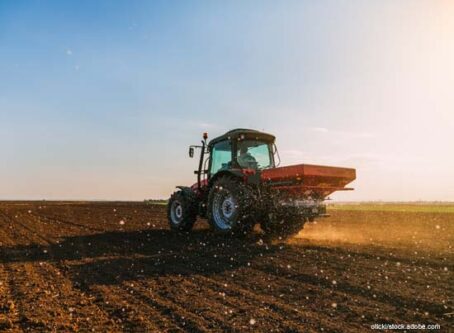South Dakota Supreme Court rules harvesting weight exemptions do not apply to bridges
Are bridges included in South Dakota’s overweight harvesting truck exemptions? On Sept. 26, the South Dakota Supreme Court ruled that they are not in response to a lawsuit filed by a trucker who received criminal and civil fines for driving on a bridge overweight despite meeting the harvesting exemption requirements.
The South Dakota Supreme Court affirmed a lower court’s ruling that South Dakota trucker Shane Edward Johnsen illegally operated an overweight truck on a bridge. The circuit court rejected Johnsen’s claim that his truck was exempt and denied his request for a jury trial.
On Oct. 1, 2016, Johnsen was hauling soybeans from a harvester to a grain elevator less than 50 miles away in a truck weighing in at 87,000 pounds. According to South Dakota Codified Law 32-22-42.2, vehicles hauling from harvesting combine to point of first unloading are given extra weight allowance of up to 10 percent. The exemption applies to trips within a range of 50 miles and does not apply to the interstate highway system.
During the short trip, Johnsen drove the truck over a bridge with signs indicating a weight limit of 66,000 pounds. When a police officer noticed the crossing and weighed the truck, Johnsen was handed both a criminal fine of $150 and a civil penalty of $15,750.
In his first court appearance in July 2017, Johnsen moved to dismiss the case, claiming SDCL 32-22-42.2 meant his truck was not subject to the posted weight limit on the bridge. Johnsen also requested a jury trial. Both the motion to dismiss and the request for a jury trial were denied by the circuit court. Johnsen appealed both decisions.
According to the South Dakota Supreme Court’s published opinion, Johnsen’s argument was based on the state legislature’s failure to include language in SDCL 32-22-42.2 that explicitly indicates that the harvesting exemption does not apply to bridges. To prove his point, Johnsen cited SDCL 32-22-16.3, which allows weight exemptions for agriculture products or livestock. That statute includes the following exception to the exemption: “The vehicle may not exceed the posted weight of any bridge or road.” Similar exceptions are not found in the harvesting weight exemption.
However, the state argued that “it would be absurd to suggest the Legislature specifically required government entities to protect bridges by posting maximum weight limits, see SDCL 32-22-47, but simultaneously exempted vehicles from having to comply with those limits,” according to court documents.
SDCL 32-22-47 allows the state to place weight restrictions on bridges and the appropriate signs needed. SDCL 32-22-48 establishes punishment and liability for anyone who violates those bridge weight restrictions. The state argued that since those two laws govern bridges specifically, they should control over the harvesting weight exemption that has no mention of bridges.
The South Dakota Supreme Court agreed with the state’s assessment of the statutes.
“We acknowledge that the harvesting exemption applies to public highways and bridges are part of a public highway,” the court opined. “But in the more specific statutes governing weight limits for bridges, the Legislature mandated government entities to post signs limiting the maximum weight the bridge may ‘accommodate,’ and the Legislature made violations of the posted weight limit a Class 2 misdemeanor.”
The justices went on to say that “to interpret the harvesting exemption to apply to bridges with posted weight limits would be contrary to the plain language” of the statutes dealing specifically with bridges. Furthermore, such an interpretation would allow an 87,000-pound truck on a bridge that cannot handle such weight, posing a significant risk of damaging the structure and injuring the driver.
Regarding the denied jury trial, the court pointed out that a jury trial can be denied if the offense carries no more than a six-month jail sentence and the court assures at the time of the request no jail sentence will be imposed. Johnsen was given that assurance.
However, Johnsen argued he has a right to a jury trial when the fine may prove to be so devastating and onerous to his business and personal life that a jury trial would be the only means to safeguard his rights. The courts ruled that Johnsen did not establish how the $15,750 civil fine differed from the $11,425 fine in the State v. Barton case. In that case, which is similar to Johnsen’s, the court ruled that the large civil fine was not grounds for a jury trial.









